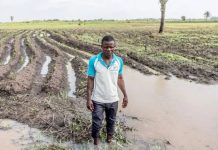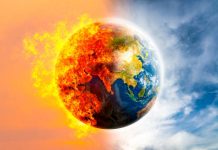
By Atayi Babs
The Big Shift Global campaign, a group of 50 organisations across the Global South and North, has called on the Multilateral Development Banks, the World Bank and its President Ajay Banga to act at the Spring Meetings to shift money out of fossil fuels and into renewables.
At Climate talks in December, countries made the decision that fossil fuels need to be phased out. In January, US President Biden paused approvals for pending and future applications to export liquefied natural gas (LNG) from new projects.
“The World Bank is lagging behind, continuing to push outdated and dangerous fossil fuel projects. President Banga talks about ending poverty and promoting shared prosperity on a ‘liveable planet’ and yet the Bank continues to promote gas as a transition fuel. This is a reputational risk to the Bank,” a release from the group says.
According to the civil society group, local communities, especially women, indigenous peoples, and other marginalised groups, carry the burden of the negative impacts of fossil gas infrastructures on their livelihoods and environment, as well as the impacts of a rapidly warming planet.
The Big Shift Global campaign says that the 2024 Spring Meetings must be the moment Multilateral Development Banks like the World Bank quit using public funds for fossil gas.
Sophie Richmond, Global Lead at the Big Shift Campaign reasons that as the Bretton Woods Institutions turn 80 this year, the World Bank cannot continue outdated, business-as-usual practices that are harming people and the planet. Gas is not the future or the answer to energy access. Gas investments are not ‘Paris-aligned’.
“The Bank must shift its finance out of fossils once and for all and into sustainable, renewable energy. The upcoming Spring meetings are the moment for the Bank to demonstrate a real commitment to the Paris Agreement and fossil fuel phase-out,” Richmond said.
According to Mark Moreno Pascual, Global Advocacy Lead at Recourse, “the ‘bigger and better’ bank framework anchored on the ‘private-sector first’ mantra, is misguided and dangerous. Not only is it perilous for people and planet, it is also a morally bankrupt choice for MDBs.”
“A bigger bank should NOT be about getting more money from the private sector but about how MDBs can provide more grants-based finance for debt-distressed countries. A “better bank” should NOT be about efficient bank operations, but about ensuring that the rights and welfare of communities are protected in the energy transition,” Pascual added.
Meanwhile, Dean Bhekumuzi Bhebhe, Campaigner for Don’t Gas Africa is of the view that the African continent stands at a crossroads in its development. “There are two possible futures that lay ahead for the continent and its people,” Bhebhe says.
“One where the World Bank continues to pursue and provide public finance for a fossil-fueled development pathway, guided by the extractive industries and colonial powers that have pulled wealth out of the continent for centuries and have failed to bring real sustainable development to most of the continent, or a different pathway that prioritizes a fossil fuel finance exclusion policy where Africa leapfrogs fossil fuels and toward a thriving economy built around energy sovereignty & independence, energy access and nurturing both the industries of the future and the natural environment, he said.”
Bhebhe reckons that this second path is currently uncharted, but it is a course that can be written by Africans for Africans – those alive today and those yet to be born.



















